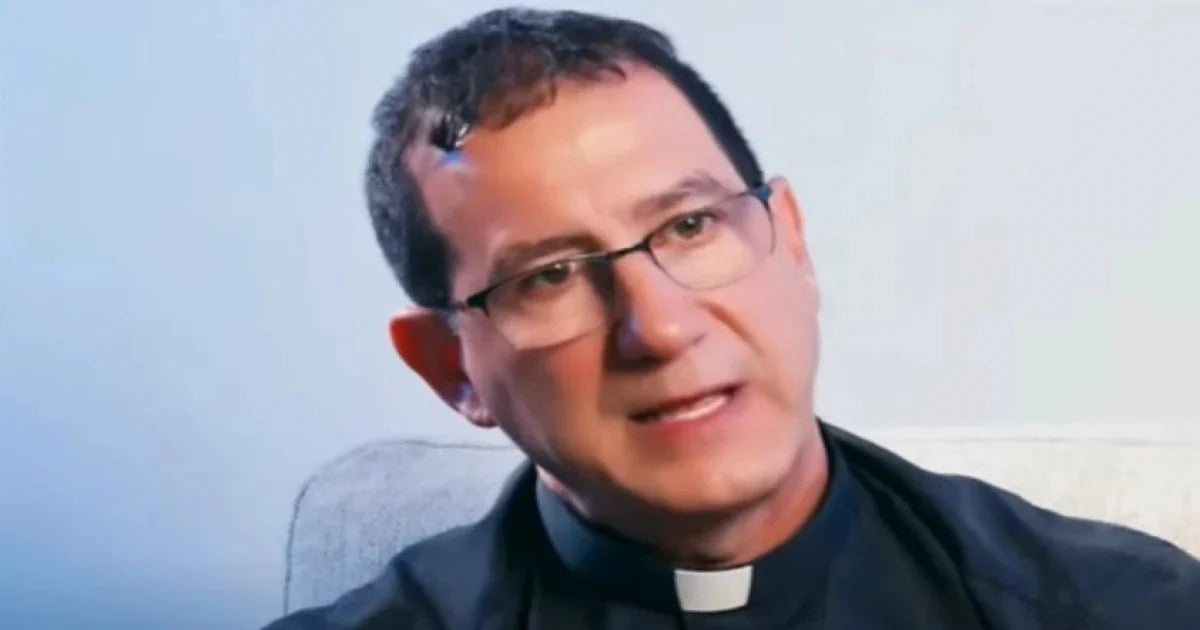The Cuban priest, Alberto Reyes Pías, known for his sharp and profound criticisms of the Castro dictatorship, has shared his thoughts on a question that many both within and outside the island have pondered: "Why do Cubans endure so much?" Reyes argues that over the past 66 years, the Cuban people have been subjected to a gradual erosion of civil society's influence, which began with the almost fanatical admiration for Fidel Castro. Castro, capitalizing on this fervor, systematically dismantled the mechanisms that allowed public participation.
Reyes, a Camagüey parish priest, highlighted that the regime has convinced the population that politics is solely the domain of the rulers, excluding the public from important national decisions. He emphasized that whenever the people have risen up, the government's response has been one of violence and repression.
In his reflection, Reyes explores the reasons behind the Cuban people's endurance. He notes that the present situation is the result of a slow and systematic dismantling of civil society's role over the decades. Before 1959, Cuban society was aware of its right to participate in national affairs. For instance, the University Student Federation of that era could protest against perceived injustices and defend students' rights. Unions understood their duty to protect workers from abuse. Society recognized its right to vote freely and directly, and when Batista staged a coup, civil society opposed him. It was a society that embraced its right to organize opposition parties, declare strikes, or protest peacefully in response to governmental abuses.
Reyes points out that the so-called 'revolutionary process' began with the people's fanatical enchantment with Castro, who projected an image of a messianic liberator, captivating not only the Cuban people but also many abroad. Exploiting this allure, Castro and his entourage gradually dismantled the very structures that empowered the populace, the same structures he once praised even as he dismantled them.
Today, the situation is starkly different. The FEU now keeps students in check, unions no longer defend workers, elections have become theatrical farces where the people vote but do not choose, opposition is constitutionally banned, strikes are punishable offenses, and peaceful protests are met with known outcomes. Reyes questions why this has been accepted as 'normal,' attributing it to the gradual stripping away of the spirit that drives a people to take control of their destiny. The Cuban people were made to believe that politics, or societal decision-making, is not their domain but that of the rulers. This has led to a population unaccustomed to seeing themselves as active participants in political and social life.
In moments when Cubans have attempted to assert their role as historical protagonists, the response has been violence, repression, or militarization of the streets. Reyes urges a reclamation of the path, to revive the awareness of the right to influence the nation's present and future. If those who have denied this right cannot embrace change, it will be up to the people to raise their voices in every possible way, discovering that, despite the costs, achieving freedom is indeed possible.
Understanding Cuban Endurance and Political Climate
What has contributed to the endurance of Cubans under the regime?
The endurance of Cubans is largely attributed to a systematic dismantling of civil society's role, beginning with the fervent admiration for Fidel Castro, who gradually removed public participation mechanisms.
How did Cuban society function before the revolution?
Before the revolution, Cuban society was very active in national affairs, with organizations like the University Student Federation and unions protesting injustices and advocating for workers' rights.
What role did Fidel Castro play in changing Cuban society?
Fidel Castro played a pivotal role by captivating the public with his image as a liberator, which he used to gradually dismantle the structures that allowed public participation in governance.
